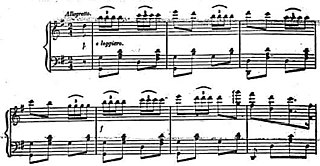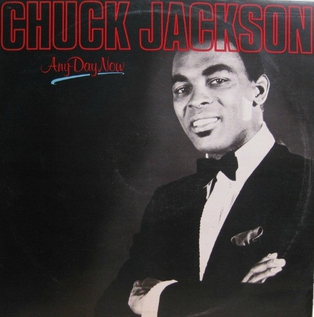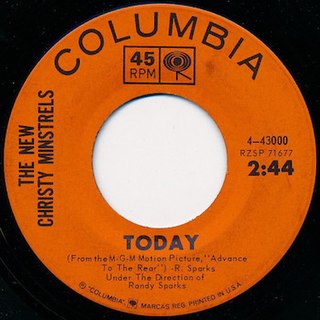Related Research Articles

Barry McGuire is an American singer-songwriter primarily known for his 1965 hit "Eve of Destruction". He was later a singer and songwriter of contemporary Christian music.

"Me and Bobby McGee" is a song written by American singer-songwriter Kris Kristofferson and originally performed by Roger Miller. Fred Foster shares the writing credit, as Kristofferson wrote the song based on a suggestion from Foster. A posthumously released version by Janis Joplin topped the Billboard Hot 100 in 1971, making the song the second posthumously released No. 1 single in U.S. chart history after "(Sittin' On) The Dock of the Bay" by Otis Redding. Gordon Lightfoot released a version that reached number 1 on the Canadian country charts in 1970. Jerry Lee Lewis released a version that was number 1 on the country charts in December 1971/January 1972 as the "B" side of "Would You Take Another Chance on Me". Billboard ranked Joplin's version as the No. 11 song for 1971.

The New Christy Minstrels are an American large-ensemble folk music group founded by Randy Sparks in 1961. The group has recorded more than 20 albums and scored several hits, including "Green, Green", "Saturday Night", "Today", "Denver" and "This Land Is Your Land". The group's 1962 debut album, Presenting the New Christy Minstrels, won a Grammy Award and remained on the Billboard 200 albums chart for two years.
"And That Reminds Me", also known as "My Heart Reminds Me", is a popular song.

"Abraham, Martin and John" is a 1968 song written by Dick Holler. It was first recorded by Dion, in a version that was a substantial North American chart hit in 1968–1969. Near-simultaneous cover versions by Smokey Robinson and the Miracles and Moms Mabley also charted in the U.S. in 1969, and a version that same year by Marvin Gaye became the hit version in the UK. It was also a hit as part of a medley for Tom Clay in 1971, and has subsequently been recorded by many other artists. Holler was particularly impressed that Bob Dylan covered the song.
Frank Mills is a Canadian pianist and recording artist, best known for his solo instrumental hit "Music Box Dancer".

"Na Na Hey Hey Kiss Him Goodbye" is a 1969 song written and recorded by Paul Leka, Gary DeCarlo and Dale Frashuer, attributed to a then-fictitious band Steam. It was released under the Mercury subsidiary label Fontana and became a number-one pop single on the Billboard Hot 100 in late 1969, and remained on the charts in early 1970.
"Come Go With Me" is a song written by C. E. Quick, an original member of the American doo-wop vocal group the Del-Vikings. The song was originally recorded by The Del-Vikings in 1956 but not released until July 1957 on the Luniverse LP Come Go With The Del Vikings. The final version was released in the second week of January 1957 and was led by Gus Backus. When Joe Averbach, the owner of Fee Bee Records couldn't handle the demand, he signed with Dot Records in late January 1957; the song became a hit, peaking at No. 5 on the US Billboard Top 100 Pop Charts. It also reached No. 2 on the R&B chart.

"Creeque Alley" is an autobiographical hit single written by John Phillips and Michelle Phillips of the Mamas and the Papas in late 1966, narrating the story of how the group was formed, and its early years. The third song on the album Deliver, it peaked at number 5 on the US Billboard pop singles chart the week of Memorial Day 1967, becoming their last Top 10 hit. It made number 9 on the UK Singles Chart, and number 4 on the Australian and number 1 on the Canadian charts.

"Buffalo Gals" is a traditional American song, written and published as "Lubly Fan" in 1844 by the blackface minstrel John Hodges, who performed as "Cool White". The song was widely popular throughout the United States, where minstrels often altered the lyrics to suit local audiences, performing it as "New York Gals" in New York City, "Boston Gals" in Boston, or "Alabama Girls" in Alabama, as in the version recorded by Alan Lomax and Shirley Collins on a 1959 field recording trip. The best-known version is named after Buffalo, New York.

"High School Confidential" is a 1958 song written by Jerry Lee Lewis and Ron Hargrave as the title song of the MGM movie of the same name directed by Jack Arnold.

"Any Day Now" is a popular song written by Burt Bacharach and Bob Hilliard in 1962. It has been recorded by numerous artists over the years, including notable versions by Chuck Jackson in 1962, Alan Price in 1965, Elvis Presley in 1969, Scott Walker in 1973 and Ronnie Milsap in 1982. In the lyrics, the singer predicts the imminent demise of a romantic relationship and describes the sadness this will leave.
"A Lover's Question" is a 1958 Pop, R&B hit for Clyde McPhatter. The single was written by Brook Benton and Jimmy T. Williams and was Clyde McPhatter's most successful Pop and R&B release. The bass singer is Noah Hopkins. "A Lover's Question" made it to #6 on the Billboard Hot 100 and was #1 for one week on the R&B chart.
"One Has My Name (The Other Has My Heart)" is a 1948 song by singing cowboy Eddie Dean, his wife Lorene "Dearest" Dean, and Hollywood songwriter Hal Blair. The song was first recorded by Jimmy Wakely and was his third release on the Folk Best Seller charts and his first number one. Within two years of the song's release, two additional versions of "One Has My Name (The Other Has My Heart)" made the country charts, recorded by Eddie Dean and by Bob Eberly.
"Rainbow at Midnight" is a song written by Lost John Miller. The song originally made the Juke Box Folk chart when it was recorded by The Carlisle Brothers in 1946. "Rainbow at Midnight reached number five on the Juke Box Folk chart.
"Guitar Man" is a 1967 song written and originally recorded by Jerry Reed, who took his version of it to number 53 on the Billboard country music charts in 1967. Soon after Reed's single appeared, Elvis Presley recorded the song with Reed playing the guitar part, and it became a minor country and pop hit.

"Sea of Heartbreak" is a song written by Paul Hampton and Hal David and recorded by Don Gibson in 1961. The song reached #2 on the Billboard Hot Country Singles & Tracks chart.
The Seekers were an Australian folk music group formed in 1962 consisting of Athol Guy, Keith Potger, Bruce Woodley and Judith Durham.

"Today" is a 1964 folk song that was a hit for The New Christy Minstrels. Written by the group's founder, Randy Sparks, it was introduced in the American comedy-Western film Advance to the Rear (1964) and released on the album titled Today.
References
- ↑ Whitburn, Joel (2010). The Billboard Book of Top 40 Hits. Billboard Books. ISBN 978-0-8230-8554-5.
- ↑ "Keith Barbour Songs, Albums, Reviews, Bio & More". AllMusic. Retrieved April 27, 2022.
- ↑ Joel Whitburn, The Billboard Book of Top 40 Hits. 7th edn, 2000
- ↑ McCall's. McCall Publishing Company. 1987.